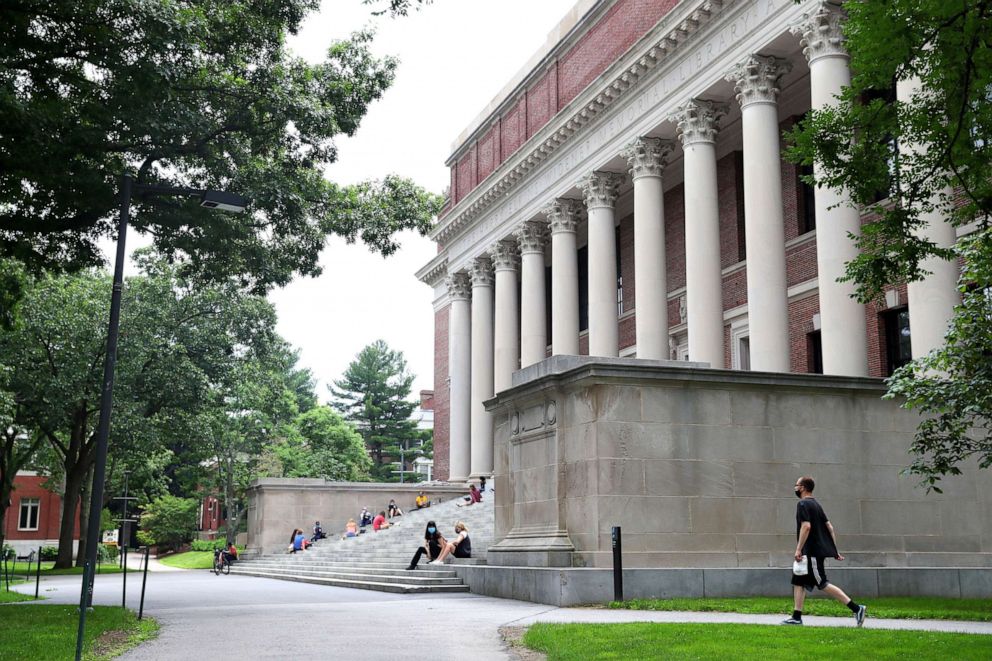Trump targets tax-exempt status for schools, universities
The tweets come as the president digs in on causes championed by his base.
President Donald Trump on Friday wrote he was instructing the Treasury Department "to re-examine" the "tax-exempt status ...and/or funding" of "universities and school systems" that, he said, "are about Radical Left Indoctrination, not Education."
In a pair of tweets sent while he flew to the battleground state of Florida for a series of events, Trump said: "Too many Universities and School Systems are about Radical Left Indoctrination, not Education. Therefore, I am telling the Treasury Department to re-examine their Tax-Exempt Status... and/or Funding, which will be taken away if this Propaganda or Act Against Public Policy continues. Our children must be Educated, not Indoctrinated!"
Trump did not provide any more details or indicate what had prompted his tweets.
The White House declined to comment when asked for more details and about what specifically prompted them. The Treasury Department did not respond to multiple requests for comment.

Trump's announcement came as he earlier this week threatened to "cut off funding" for schools that do not physically reopen in the fall because of continued concerns about the novel coronavirus.
He has insisted states and local governments physically reopen regardless of the spread of COVID-19, but it remains unclear how the federal government could exert significant financial pressure on state and local school systems.
Attacking universities perceived as "liberal" has long been a conservative cause.
The White House this week criticized two elite institutions, Harvard University and the Massachusetts Institute of Technology, after they sued the Trump administration for moving to revoke the visas of foreign students who take all-virtual classes in the fall.
The president's tweets came as he fights to win re-election in November and struggles in polling against the presumptive Democratic nominee, former Vice President Joe Biden. The president has embraced divisive positions popular with his conservative base, such as defending statues of Confederate generals.




